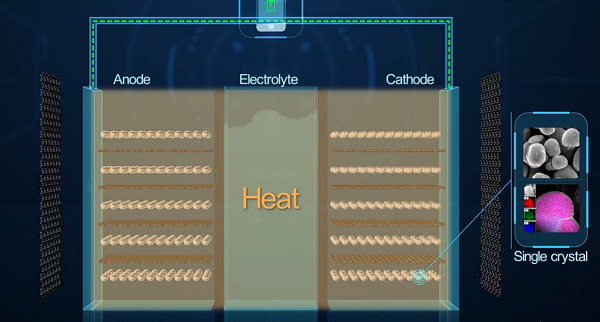Battery technology is the biggest threshold for the vigorous promotion and development of electric vehicles, and the battery industry is at a stage where the development of lead-acid batteries and traditional lithium batteries is at a bottleneck. The battery industry and even the electric vehicle industry have brought new changes. So which is better, graphene battery or lithium-ion battery? What is the difference between graphene batteries and lithium batteries?

1. Which is better, graphene battery or lithium battery
Graphene battery is a honeycomb flat film formed by sp2 hybridization of carbon atoms. It is a quasi-two-dimensional material with a thickness of only one atomic layer, so it is also called single atomic layer graphite. A new energy battery is developed by utilizing the characteristics of rapid and massive shuttle motion of lithium ions between the graphene surface and electrodes. Due to the characteristics of high conductivity, high strength, and ultra-thinness, the advantages of graphene in the aerospace field are also extremely prominent.
Graphene is known as the "king of new materials" by researchers and major media. It is a new type of nanomaterial known to mankind with high strength, good toughness, light weight, high light transmittance and good electrical conductivity.
Lithium-ion battery: Lithium ion in lithium-ion battery refers to the energy storage material in the battery, and the battery reaction (chemical change) occurs during the charging and discharging process. It is a kind of battery that uses lithium metal or lithium alloy as negative electrode material and uses non-aqueous electrolyte solution. Lithium-ion batteries can be roughly divided into two categories: lithium metal batteries and lithium-ion batteries. Lithium-ion batteries do not contain lithium in the metallic state and are rechargeable. The fifth generation of rechargeable batteries, lithium metal batteries, was born in 1996, and its safety, specific capacity, self-discharge rate and performance-price ratio are better than lithium-ion batteries.
2. The difference between graphene batteries and lithium batteries
1) Different power storage: the specific energy value of a lithium battery (whichever is the most advanced) is 180wh/kg, while the specific energy of a graphene battery exceeds 600wh/kg.
2) Different service life: The service life of graphene is twice that of lithium batteries, and it is also more durable than lithium batteries at high temperatures.
3) Industrial mass production: Graphene batteries have not yet been industrialized in mass production.
The biggest disadvantage of lithium batteries is their poor safety. Although the probability of explosion is low, as long as there is a possibility of explosion, it is very dangerous. However, it is lighter in weight and smaller in size, so it is lighter and more durable than lead-acid batteries. It can be used for 3-5 years, and the number of charge and discharge can reach 2000 times.
Due to its unique properties, graphene has been called a "wonder material" and scientists have even predicted that it will "revolutionize the 21st century". Professor Colin Bailey, Vice-Chancellor of the University of Manchester, said: "Graphene has the potential to revolutionise a huge variety of applications, from smartphones and ultra-fast broadband to drug delivery and computer chips."
Graphene batteries, its technology is not mature enough, and the quality is uneven, but the advantages are good power storage, light weight, and high durability.


